Life
Sign up for our newsletter
We summarize the week's scientific breakthroughs every Thursday.
-
 Genetics
GeneticsLiberia’s Ebola outbreak largely traced to one source
Ebola’s spread and evolution in Liberia echoes patterns seen in Sierra Leone.
-
 Neuroscience
NeuroscienceBusy eyes can make ears go temporarily deaf
When challenged with a tough visual task, people are less likely to perceive a tone, suggesting that perceptual overload can jump between senses.
-
 Neuroscience
NeuroscienceEyes hard at work can make ears go temporarily deaf
When challenged with a tough visual task, people are less likely to perceive a tone, suggesting that perceptual overload can jump between senses.
-
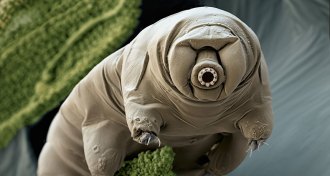 Animals
AnimalsWater bears’ genetic borrowing questioned
A new analysis of tardigrade DNA suggests that water bears don’t swap many genes with other organisms after all.
-
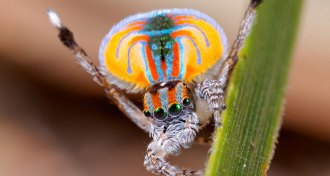 Animals
AnimalsFor male peacock spiders, the best dancers get the girl
Male peacock spiders dance to attract the ladies. And those that perform the best get the girl, a new study finds.
-
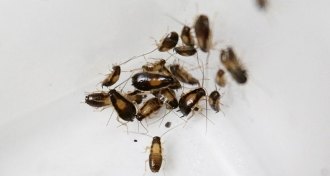 Animals
AnimalsGut bacteria’s compounds bring cockroaches together
German cockroaches may rely on gut bacteria to help attract fellow roaches.
-
 Animals
AnimalsGut bacteria compounds bring cockroaches together
Gut bacteria in young German cockroaches (Blattella germanica) produce fragrant compounds that, when excreted, attract other roaches.
-
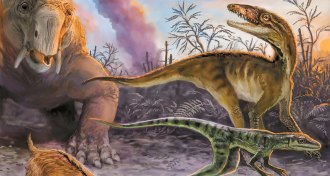 Paleontology
PaleontologyNew dating of dino ancestor challenges Triassic timeline
New dates for geologic layers of well-known fossil formation show that dinosaurs and their ancient relatives were separated by less time than researchers thought.
-
 Genetics
GeneticsDNA editing shows success in mosquito sterilization
A new gene drive that sterilizes females could reduce numbers of malaria mosquitoes
-
 Health & Medicine
Health & MedicineHigh-potency pot smokers show brain-fiber damage
People who smoke potent pot had signs of damage in a brain communication link.
-
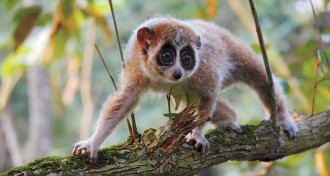 Animals
AnimalsPygmy slow loris hibernates in winter
The pygmy slow loris truly hibernates, making it the first primate found outside Madagascar to do so, a new study says.
By Susan Milius -
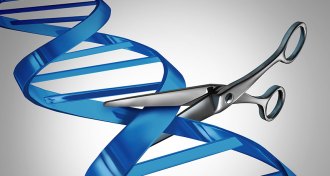 Genetics
GeneticsHuman gene editing research gets green light
Gene editing research can move forward, but not for reproductive purposes, international summit committee says.